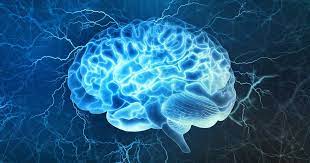Brain development is a complex and fascinating process that occurs throughout our lives. From infancy to adulthood, our brains are constantly growing, changing, and adapting to new experiences. Understanding the different stages of brain development can help us to better support our own mental health and the development of those around us. In this blog post, we will explore the different stages of brain development and the factors that influence them. We’ll also look at some tips for promoting healthy brain development and debunk some common myths about the brain.
Introduction
Brain development is a lifelong process that starts in the womb and continues through adolescence and into adulthood. During this time, the brain undergoes a series of complex changes that affect our behavior, emotions, and cognitive abilities.
Stages of Brain Development
The first stage of brain development is prenatal, starting from the moment of conception. During this time, the brain is rapidly forming neurons and synapses that will lay the foundation for future learning and development.
After birth, the brain continues to grow and develop rapidly during the first few years of life. This is a critical time for brain development, as the brain is highly plastic and responsive to new experiences.
As we enter childhood and adolescence, the brain continues to develop and refine its neural connections, allowing us to learn and adapt to new environments.
Factors Influencing Brain Development
Several factors can influence brain development, including genetics, environment, and experiences. For example, exposure to stress, trauma, or neglect can have a significant impact on brain development, leading to long-term consequences for mental health and well-being.
On the other hand, positive experiences, such as social support, physical exercise, and engaging in creative activities, can promote healthy brain development and enhance cognitive abilities.
Debunking Brain Myths
There are many myths and misconceptions about the brain that can be harmful to our understanding of brain development. For example, the idea that we only use 10% of our brain is a myth that has been debunked by neuroscientists.
Another common myth is that certain activities, such as listening to classical music or playing brain-training games, can make us smarter. While these activities may have some benefits, there is no scientific evidence to support the idea that they can significantly enhance cognitive abilities.
Tips for Promoting Healthy Brain Development
There are several simple steps that we can take to promote healthy brain development, including:
Engaging in physical exercise
Eating a healthy and balanced diet
Getting enough sleep
Reducing exposure to stress and trauma
Engaging in social activities and building strong relationships
Conclusion
Brain development is a complex and ongoing process that can be influenced by a variety of factors. By understanding the different stages of brain development and promoting healthy habits, we can support our own mental health and the development of those around us. For more information check out http:\\www.letsflytogather.com.

